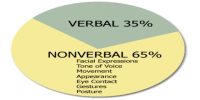Functional Structure
A functional structure is one of the most common organizational structures. Grouping of jobs of similar nature under functional and organizing these major functions as separate departments creates a functional structure. All departments report to a coordinating head. For example, in a manufacturing concern division of work into key functions will include production, purchase, marketing, accounts and personnel. These departments may be further divided into sections.

Advantages: The functional structure has many advantages to offer. Important among them are as follows:
- A functional structure leads to occupational specialisation since emphasis is placed on specific functions.
- It promotes control and coordination within a department because of similarity in the tasks being performed.
- It helps in increasing managerial and operational efficiency and this results in increased profit.
- It leads to minimal duplication of effort which results in economies of scale and this lowers cost.
- It makes training of employees easier as the focus is only on a limited range of skills.
Disadvantages: The functional structure has certain disadvantages which an organization must take into consideration before it adopts it. Some of them are as follows:
- A functional structure places less emphasis on overall enterprise objectives than the objectives pursued by a functional head. Such practices may lead to functional empires wherein the importance of a particular function may be overemphasized.
- It may lead to problems in coordination as information has to be exchanged across functionally differentiated departments.
- A conflict of interests may arise when the interests of two or more departments are not compatible.
- It may lead to inflexibility as people with same skills and knowledge base may develop a narrow perspective and thus, have difficulty in appreciating any other point of view.














